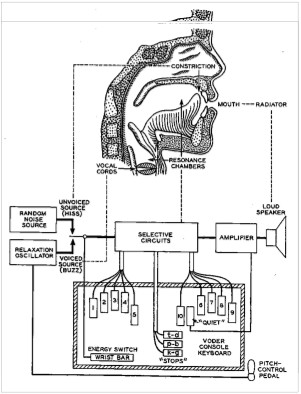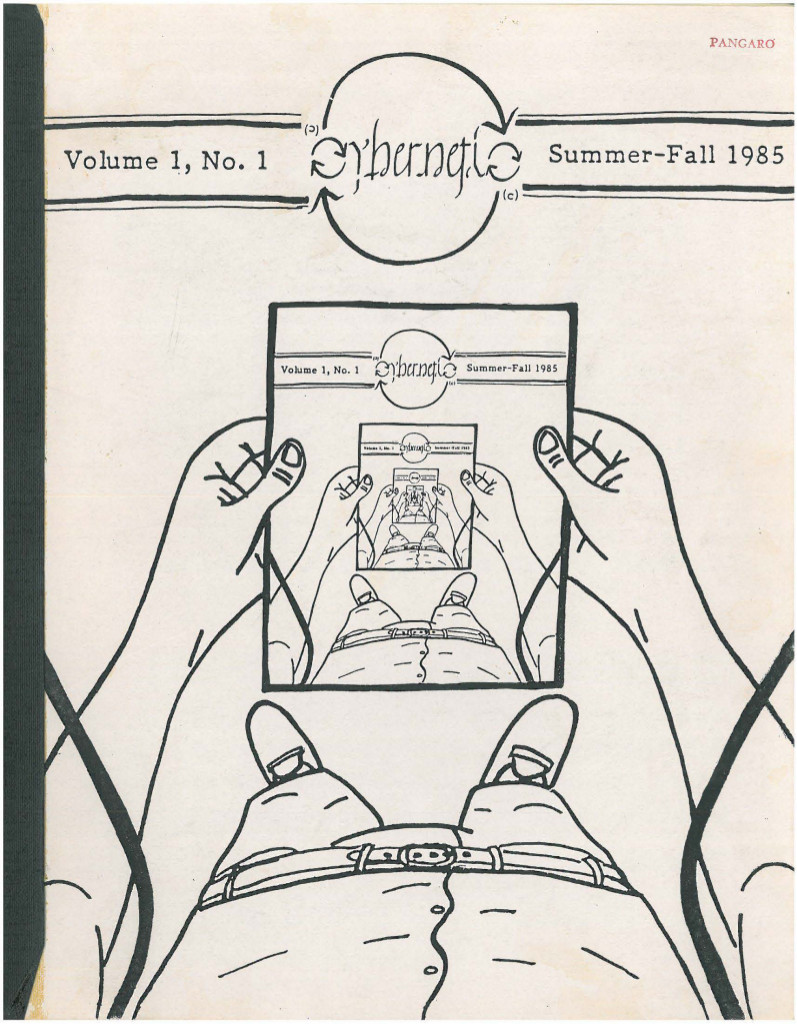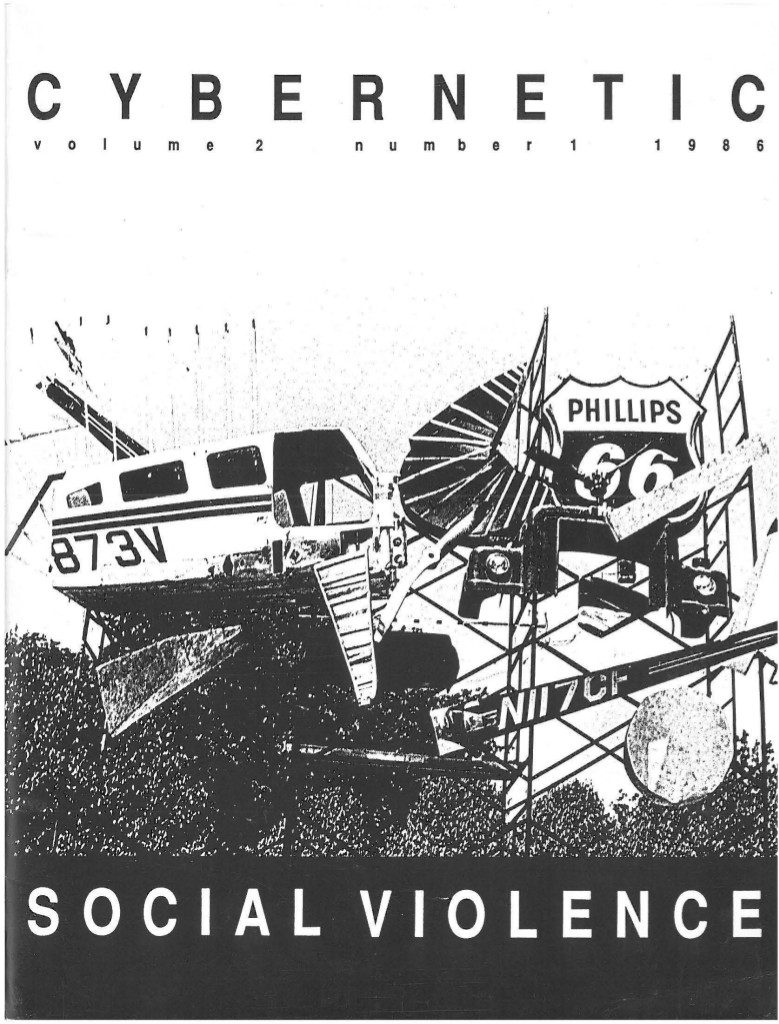Bernard Dionysus Geoghegan: The Cybernetic Apparatus: Media, Liberalism, and the Reform of the Human Sciences (2012)
Filed under thesis | Tags: · cybernetics, history of technology, liberalism, linguistics, structuralism, technology

“The Cybernetic Apparatus examines efforts to reform the human sciences through new forms of technical media. It demonstrates how 19th-century political ideals shaped mid-20th-century programs for cybernetic research and global science sponsored by the Rockefeller Foundation. Through archival research and textual analysis, it reconstructs how and why new media, especially digital technologies, were understood as part of a neutral and impartial apparatus for transcending disciplinary, ethnic, regional, and economic differences. The result is a new account of the role of new media technologies in facilitating international and interdisciplinary collaboration (and critique) in the latter half of the twentieth century.
Chapter one examines how political conceptions of communications and technology in the United States in the nineteenth century conditioned the understanding and deployment of media in the twentieth century, arguing that American liberals conceived of technical media as part of a neutral apparatus for overcoming ethnic, geographic, and economic difference in the rapidly expanding nation. Chapter two examines the development of new media instruments as technologies for reforming the natural and human sciences from the 1910s through the 1940s, with particular attention to programs administered by the Rockefeller Foundation. Chapters three and four examine the rise, in the 1940s and 1950s, of cybernetics and information theory as an ideal of scientific neutrality and political orderliness. These chapters demonstrate how programs sponsored by the Rockefeller Foundation, MIT, and other institutions shaped linguist Roman Jakobson’s and anthropologist Claude Lévi-Strauss’s efforts to redefine their fields as communication sciences. Chapter five considers how critics of cybernetics, including Noam Chomsky, Claude Shannon, and Roland Barthes, critically re-evaluated the claims of cybernetics to redefine the relations between technical research and the human sciences.”
PhD dissertation
Northwestern University & Bauhaus-Universität Weimar, 2012
262 pages
Author
Related paper by the author: From Information Theory to French Theory: Jakobson, Lévi-Strauss, and the Cybernetic Apparatus (Critical Inquiry 38, Autumn 2011)
PDF (6 MB, updated on 2021-3-9)
EPUB (2 MB, added on 2021-3-9)
Cybernetic, 1-2 (1985-1986)
Filed under magazine | Tags: · autopoiesis, biology, cognition, computing, cybernetics, language, machine, mathematics


Editors: Gordon Pask, Humberto Maturana, Heinz von Foerster, Terry Winograd, Paul Trachtman, Larry Richards
Publisher The American Society for Cybernetics
ISSN 0883-4202
PDF (Vol 1, No 1, Summer-Fall 1985, 148 pp)
PDF (Vol 2, No 1: “Social Violence”, 1986, 82 pp)
Eden Medina: Cybernetic Revolutionaries: Technology and Politics in Allende’s Chile (2011)
Filed under book | Tags: · 1970s, chile, cybernetics, cybersyn, machine, networks, socialism

In Cybernetic Revolutionaries, Eden Medina tells the history of two intersecting utopian visions, one political and one technological. The first was Chile’s experiment with peaceful socialist change under Salvador Allende; the second was the simultaneous attempt to build a computer system that would manage Chile’s economy. Neither vision was fully realized–Allende’s government ended with a violent military coup; the system, known as Project Cybersyn, was never completely implemented–but they hold lessons for today about the relationship between technology and politics.
Drawing on extensive archival material and interviews, Medina examines the cybernetic system envisioned by the Chilean government–which was to feature holistic system design, decentralized management, human-computer interaction, a national telex network, near real-time control of the growing industrial sector, and modeling the behavior of dynamic systems. She also describes, and documents with photographs, the network’s Star Trek-like operations room, which featured swivel chairs with armrest control panels, a wall of screens displaying data, and flashing red lights to indicate economic emergencies.
Studying project Cybersyn today helps us understand not only the technological ambitions of a government in the midst of political change but also the limitations of the Chilean revolution. This history further shows how human attempts to combine the political and the technological with the goal of creating a more just society can open new technological, intellectual, and political possibilities. Technologies, Medina writes, are historical texts; when we read them we are reading history.
Publisher MIT Press, 2011
ISBN 0262016494, 9780262016490
326 pages
Cybersyn at wikipedia
publisher
google books
Download (removed on 2013-1-29 upon request of the publisher)
related: Miller Medina, Jessica Eden: “Designing Freedom, Regulating a Nation: Socialist Cybernetics in Allende’s Chile” (2006)

